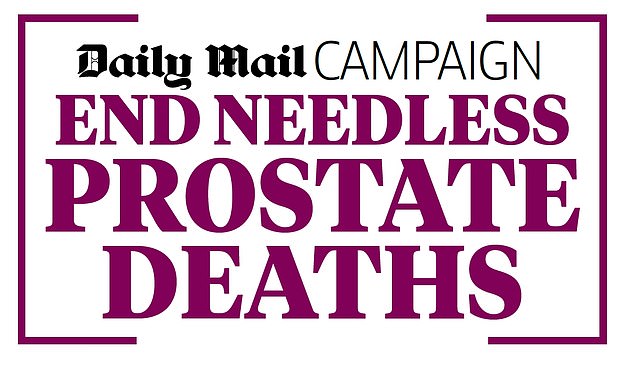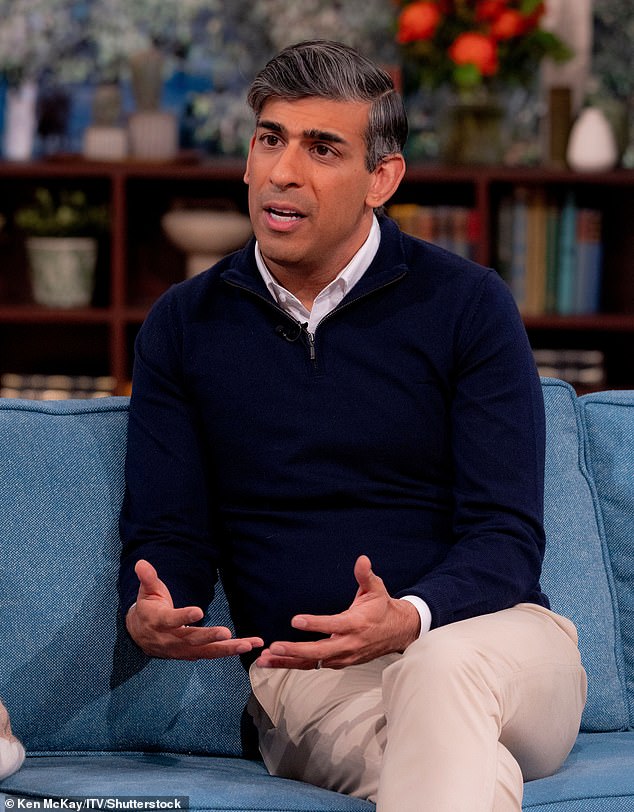By SHAUN WOOLLER, EXECUTIVE HEALTH EDITOR
Published: | Updated:
Public support for prostate cancer screening has grown following a Daily Mail campaign, a poll reveals.
Some 91 per cent of Britons now believe the NHS should offer regular prostate checks for men, as it does for breast cancer in women.
This is up from 86 per cent in April when OnePoll last conducted its survey on behalf of the charity Prostate Cancer Research.
The latest findings found widespread problems around the current system, which relies on men to come forward and ask GPs for tests when they already have concerns.
Responses from 2,000 adults show one in five has had a male family member or close friend die from the disease.
Among those, more than three quarters believed earlier diagnosis could have saved the life of their loved one.
And more than one quarter of those polled had no trust, or not much trust at all, in the current NHS system to detect prostate cancer at an early stage.
Prostate cancer is the most diagnosed form of cancer in England, with 55,033 cases identified in 2023, the latest figures show.

Catching it early improves the odds of successfully treating the disease, which kills around 10,200 men in England each year.
The Daily Mail is campaigning for a national prostate cancer screening programme, initially targeted at high risk men.
This includes those who are black or have a family history of the disease.
Women aged between 50 and 70 are offered mammograms every three years.
More than half of those polled said their opinion of their local MP would worsen if they opposed the introduction of screening.
The survey found a strong desire among its respondents for the NHS to be more proactive about collecting and sharing information about medical history.
Almost seven in ten (69 per cent) said in the event they were diagnosed with prostate cancer, they would want their male family members’ NHS records to be automatically updated to reflect this.
There was also considerable appetite for technological innovation, with 60 per cent supporting the use of artificial intelligence (AI) to improve diagnosis, for example, by reading MRI scans faster and more accurately.

Health secretary Wes Streeting has declared his support for a national prostate cancer screening programme in a major boost for the Mail’s campaign.
The health secretary told MPs in April that he would like to see the NHS proactively offer men tests for the disease in a move that could prevent thousands of needless deaths.
He said he is ‘particularly sympathetic’ to the argument that this should initially be targeted at high-risk men.
The call for targeted screening has also been backed by former prime minister Rishi Sunak, former home secretary Sir James Cleverly and Calvin Bailey, a Labour MP and the chairman of the all-party parliamentary group on prostate cancer.
David James, the director of patient projects and influencing at Prostate Cancer Research, said: ‘These poll results send an unequivocal message to policymakers: the public overwhelmingly supports the introduction of a national screening programme.
‘The current system is clearly failing to meet the public’s expectations for early detection and proactive management of genetic risk.
‘It’s time for the NHS to prioritise a targeted screening programme that could save countless lives and alleviate the long-term burden on our healthcare system.’
The charity’s research suggests targeted screening, focused on black men, those with BRCA1/2 mutations and those with a family history of the disease, could mean an additional 775 early diagnoses per year for those aged between 45 and 69.

The research also suggests these changes could spare almost 300 men a year from a stage 4 diagnosis, in which prostate cancer becomes incurable.
A Department of Health and Social Care spokesman said: ‘This Government has been clear we would like to see screening in place, but the decision must be evidence-led.’








